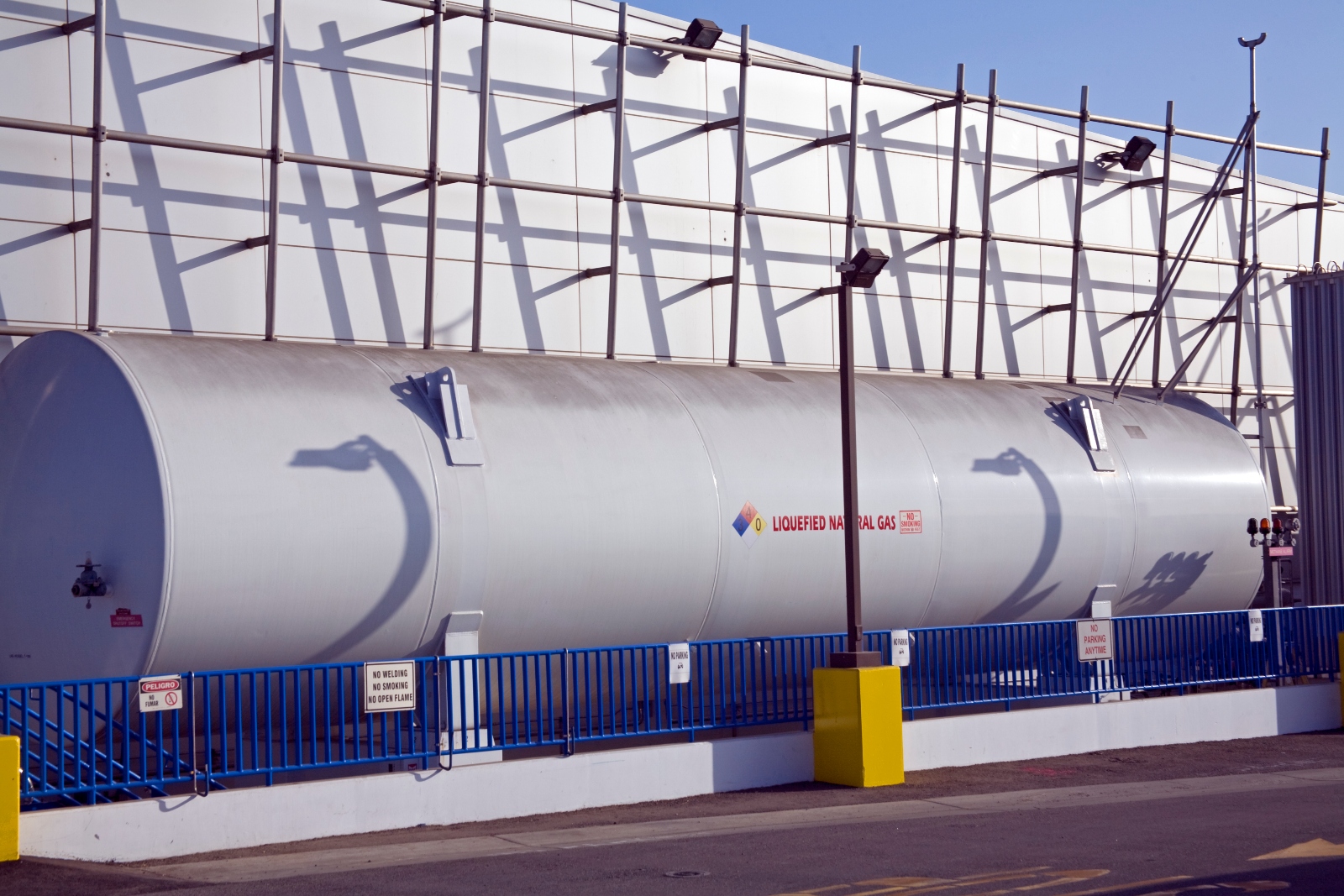This story was originally published by The Guardian and is reproduced here as part of the Climate Desk collaboration.
The Biden administration has released a long-awaited analysis on the economic and environmental effects of liquefied natural gas, or LNG, exports, concluding any further expansion would drive up costs for domestic consumers and hamper efforts to curtail the climate crisis.
In January, Joe Biden paused the Department of Energy’s approvals of fossil gas exports to big consumers in Asia and Europe in order to conduct the review, in a move welcomed by climate scientists, environmental justice advocates, and public health experts but decried by the oil and gas industry.
The analysis published showed rising LNG exports risk dramatically raising greenhouse gas emissions and could also trigger price hikes for U.S. energy consumers, said Energy Secretary Jennifer Granholm, in a letter summarizing the research’s findings.
Granholm told reporters that a business-as-usual approach to LNG export permits was neither sustainable nor advisable, and that the findings underscored the need for a cautious approach to new permits.
The Department of Energy analysis was welcomed by environmental groups.
“The study makes it clear that expanding fossil fuel exports would greatly harm the economy, climate, and environment,” said Rachel Cleetus, the policy director for the Climate and Energy Program at the Union of Concerned Scientists.
“At a time when the world should be increasingly committed to moving away from fossil fuels, the U.S. must adopt a forward-looking view to ensure the public is not saddled with the costs and consequences of short-sighted decisions that pander to the narrow interests of polluting corporations.”
The Energy Department will now open a 60-day comment period on the draft analysis.
Donald Trump, a climate skeptic and supporter of fossil-fuel development, has promised to immediately end the moratorium on new LNG export permits when he returns to the White House in January.
In response to the energy department analysis, Moneen Nasmith, senior attorney at Earthjustice, a legal advocacy group, said that the Department of Energy’s “analysis confirms the facts we’ve known for years: Rampant LNG exports drive up energy prices, contribute to the catastrophic effects of climate change, and delay the global transition to truly clean energy. Allowing projects like the massive CP2 [Calcasieu Pass 2] proposal in Louisiana to move forward goes against the public interest.”
“These studies show clearly that LNG exports are in gas executives’ best interest and nobody else’s,” said Lauren Parker, an attorney at the Center for Biological Diversity’s Climate Law Institute.
“Exporting fracked gas worsens climate change, harms wildlife, and raises prices for U.S. consumers. The studies find current supply meets all domestic and global energy needs. Expanding LNG hasn’t been in the public interest for a long time.”
The U.S. only began exporting LNG in 2016, but the country is now the world’s largest producer and exporter of fossil gas and oil. Biden’s pause, which came amid growing pressure from environmental advocates to make good on his campaign promise to be the country’s first climate president, held up issuing permits for more than a dozen new LNG export facilities, including the record-size CP2 project, described by an expert as a “climate bomb.”
Federal officials have been forced to defend the pause in court, while 600,000 Americans — including climate scientists, public health professionals, consumer advocates, veterans, national security experts, lawmakers, and frontline community members — weighed in, urging the Biden administration to curb fossil gas exports.
Reacting to Tuesday’s study, Tonyehn Verkitus, executive director of Physicians for Social Responsibility Pennsylvania, said: “LNG exports not only solidify the continued need for fracked gas, but also the release of large volumes of toxic chemicals into the air, threatening any progress on the climate crisis and clean air.
“The result is a financial win for corporations and an economic drain for the people. What no one talks about is the unmeasurable mental, emotional, and psychological impacts from noise and light pollution and the associated stress of industry.”
A recent peer-reviewed study found that the climate impact of LNG is even greater than coal, and causes significant harm to air quality and public health. Still, the oil and gas industry is seeking to build on its record profits by rapidly expanding U.S. export capacity capacity — even as demand drops in Europe and security concerns rise around exports via China.
Research published in August from Greenpeace and the Sierra Club found the expansion of LNG exports is responsible for scores of premature deaths and nearly $1 billion in annual health costs.
Tyson Slocum, director of the nonprofit Public Citizen’s Energy Program, said: “Already approved and under construction LNG export terminals will nearly double America’s already record export capacity, and pending applications would result in as much as a quadrupling of existing capacity.
“Today’s study makes clear that all pending export applications must be denied as being inconsistent with the public interest, and should result in a reassessment of existing exports to determine compatibility with the public interest.”
Reuters contributed reporting.


